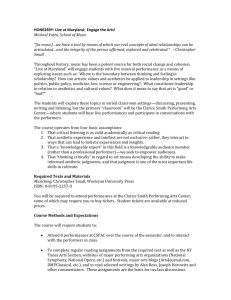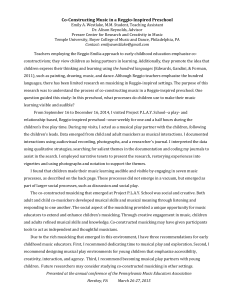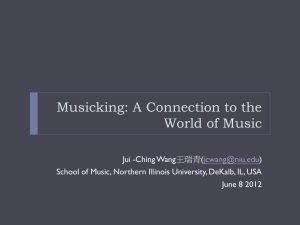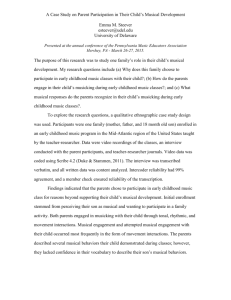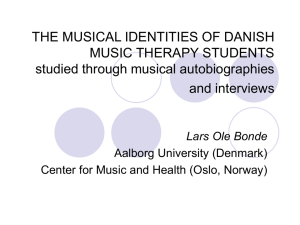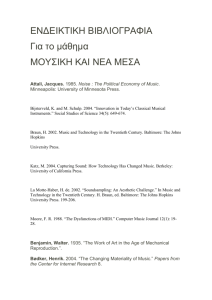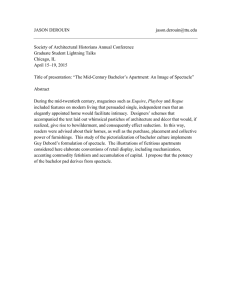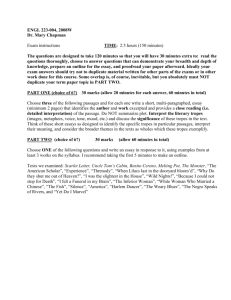Document 16066343
advertisement
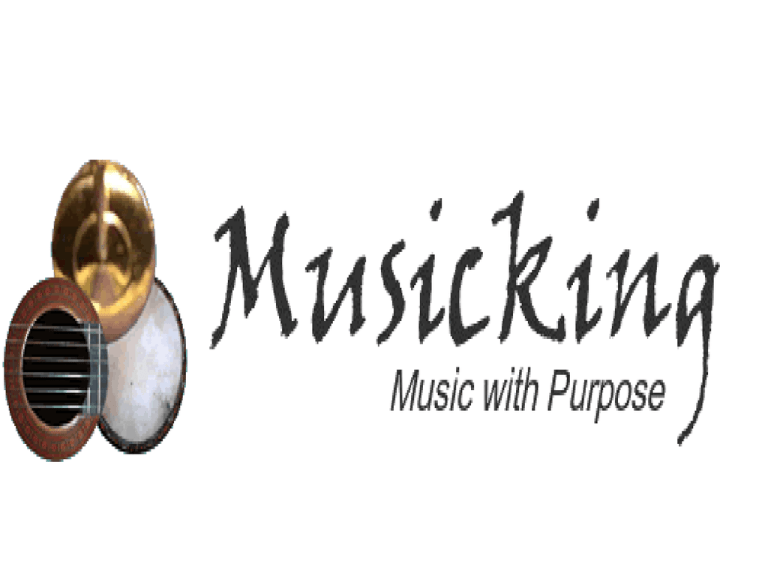
Musicking • Music – organizing sounds into meanings • Music is an activity (a verb not just a noun) – something people do – Rather than just the ‘thingness’ of music • Musicking – to take part in a musical performance – Performing, listening, rehearsing, practicing, providing material for performance, dancing Musicking – Christopher Small (1998) • An activity by means of which we bring into existence a set of relationships that model the relationships of our world, not as they are but as we would wish them to be • Through musicking we learn about and explore those relationships • We affirm them to ourselves and anyone else who may be paying attention • We celebrate them • Musicking -- a way of knowing our world – not that pregiven physical world, divorced from human experience, that modern science claims to know but the experiential world of relationships in all its complexity Small on Musicking • If a musical work exists in the relationships between the sounds as performers make them and as hearers hear them, then it exists only in performance • And can only be known in the act of musicking Spectacle • performers present themselves as representative of a larger group or a larger reality • Symbolic reality serves to differentiate theater and spectacle • Must have an audience -- spectacles are things to be seen • A public display of society’ central meaningful events • The presentation of key elements in the public’s cultural and emotional life • Such public events by means of structure and enactment reconstitute the whole community The spectacle of professional music • • • • • microcosm of the larger society -- model of social relations Cultural meaning the “nature” of the product to be made division of labor within the organization (players) – Each player highly skilled on a single instrument (in contrast to Balinese gamelan) Musical Tropes • figurative language is part of the reality maintenance system of a culture or sub-culture. • The ubiquity of tropes in visual as well as verbal forms can be seen as reflecting our fundamentally relational understanding of reality. • Reality is framed within systems of analogy • Figures of speech enable us to see one thing in terms of another • tropes 'orchestrate the interactions of signifiers and signifieds' in discourse (Silverman 1983, 87). The spectacle of music • The ideal of heroic individualism that appeals to members of western industrial bourgeoisie • Stories told will arouse no response unless they resonate with the desires values of those at whom they are aimed • Struggle and the overcoming of one force by another and the celebration of victory • The force that overcomes is … depends on the music • The formulas take us to mythic time – involving activities of heroic individuals demonstrating in their conflict and resolution exemplary struggles and resolutions – This closes the meta-narrative • Order is brought into existence and the end is final
